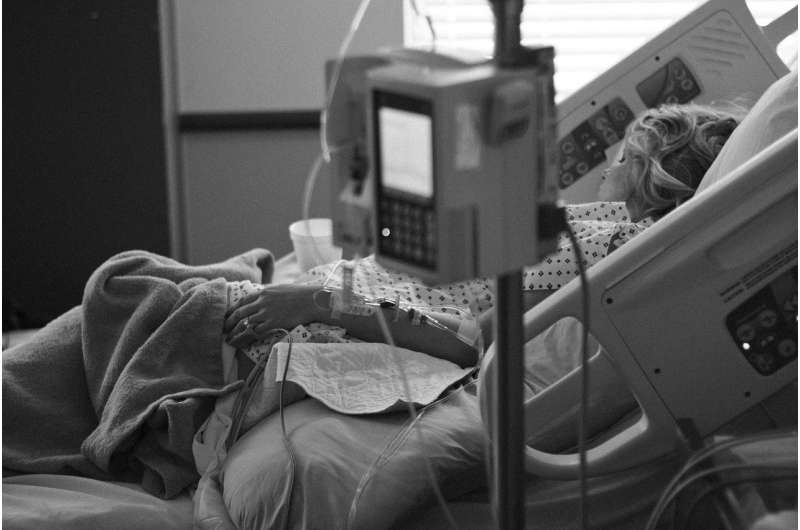Credit: CC0 Public Domain
When deciding not to resuscitate patients in cardiac arrest, ethical issues arise. Nurses and physicians conflicting perspectives often cause frustration. In a new doctoral thesis from Uppsala University, Mona Pettersson examines clinical and ethical perspectives on "DNR orders" in cancer care.
Sometimes, when a patient is so ill that performing cardiopulmonary rescue (CPR) would do more harm than good, a DNR order is issued. Sometimes they are issued very late, perhaps even after CPR has been initiated. Sometimes they are unclear, and sometimes contradictory. Performing CPR on a patient at the end of their cancer can also be experienced by caregivers as the opposite of good caregiving. This can cause stress among the medical staff.
From a physician's perspective, there is often hope for the patient's survival even when the cancer has progressed very far. The physicians sometimes choose not to inform the patient that a DNR order has been issued. Often with the patient's best interest in mind. They do not want them to lose hope. If the decision is made close to the cardiac arrest, this can make it harder to inform the patient.
Nurses have close and daily contact with their patients. If the patient, and perhaps also their family, is informed about the DNR order, nurses can support them and answer their questions. Some nurses wish physicians would make DNR decisions sooner, for them to be able to do so.
According to the Swedish Patient's Act, patients have the right to take part and be informed in their treatment. But both the Patient's Act and the National Board of Health and Welfare's recommendations underline the importance of adapting the information to the individual. Physicians and nurses have a responsibility to handle decisions and information with the patient's best interest in mind. This could mean not to inform, if it could do more harm than good. Guidelines from the Swedish Society of Medicine, the Swedish Society of Nursing and the Swedish Resuscitation Council support this.
The difficulty lies in assessing whether the information does more harm than good for patients and their families. This is where nurses and physicians have different perspectives.
At many haematology and oncology wards, there are experiences of DNR orders and the frustration they can cause. A majority of the nurses and physicians who took part in Mona Pettersson's research express that it is important for patients and their next-of-kin to be involved in or informed about decisions made. But few of them think this can become the reality of their workplace.
Mona Pettersson's thesis shows that it is important for nurses and physicians to understand each other's perspectives. To avoid conflicts between them, communication and ethical competence is crucial.
"Nurses and physicians share the responsibility of communicating with one another. For a common understanding they need insight into each other's perspectives on DNR orders," says Mona Pettersson.
She hopes her research will lead to such an understanding between nurses and physicians, to patients receiving the same information from all parties and to safer end-of-life care.
More information: COMPETENCE AND COMMUNICATION: Do Not Resuscitate Decisions in Cancer Care: uu.diva-portal.org/smash/record.jsf?pid=diva2%3A1253103&dswid=-1699
Provided by Uppsala University






















